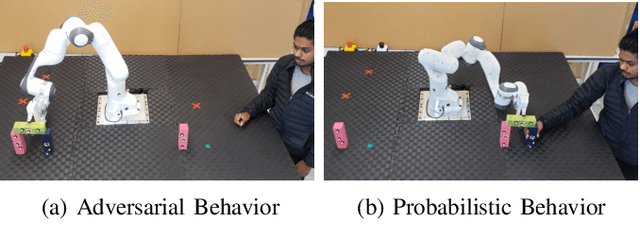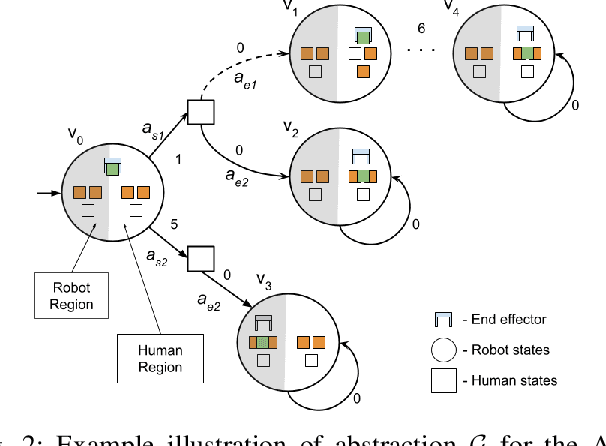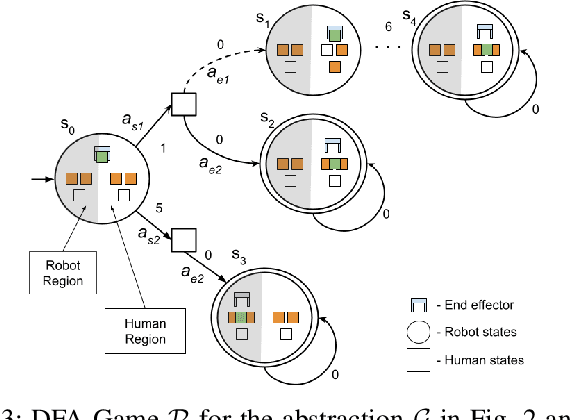Let's Collaborate: Regret-based Reactive Synthesis for Robotic Manipulation
Paper and Code
Mar 14, 2022



As robots gain capabilities to enter our human-centric world, they require formalism and algorithms that enable smart and efficient interactions. This is challenging, especially for robotic manipulators with complex tasks that may require collaboration with humans. Prior works approach this problem through reactive synthesis and generate strategies for the robot that guarantee task completion by assuming an adversarial human. While this assumption gives a sound solution, it leads to an "unfriendly" robot that is agnostic to the human intentions. We relax this assumption by formulating the problem using the notion of regret. We identify an appropriate definition for regret and develop regret-minimizing synthesis framework that enables the robot to seek cooperation when possible while preserving task completion guarantees. We illustrate the efficacy of our framework via various case studies.
 Add to Chrome
Add to Chrome Add to Firefox
Add to Firefox Add to Edge
Add to Edge